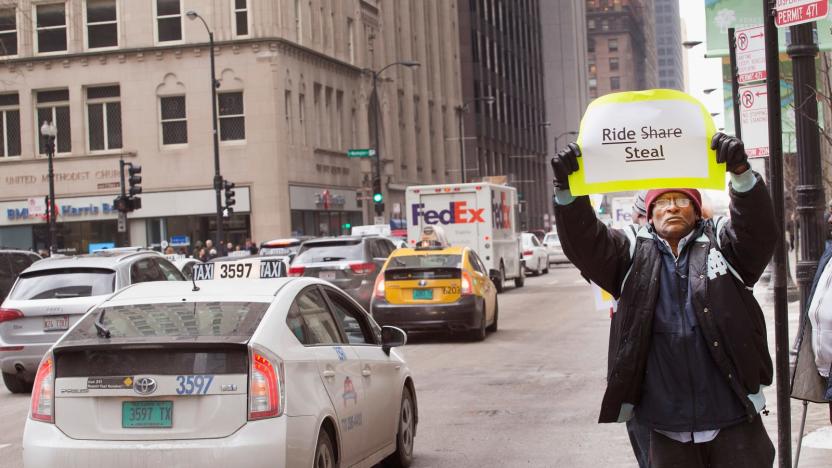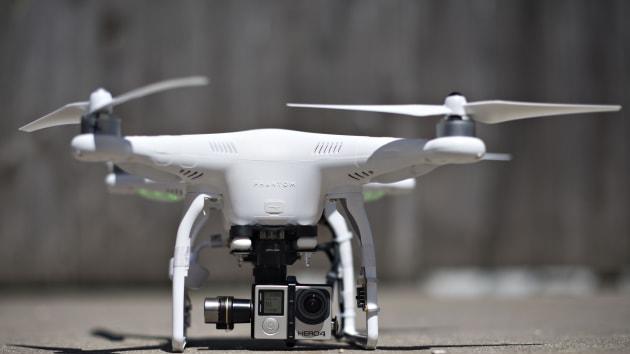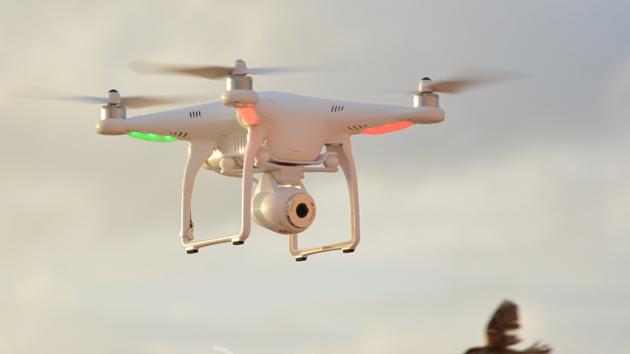regulations
Latest

The Engadget Podcast Ep 24: The Biggest Lie
Senior editors Edgar Alvarez and Devindra Hardawar join host Terrence O'Brien to discuss the biggest stories of the week, including Facebook's Journalism Project and the Emoji takeover of Monopoly. Then they'll talk about Volkswagen's massive settlement and pending indictments. Plus they'll try to recap Dieselgate without messing up the timeline.

Starting today, it will be a lot harder to vape if you're under 18
In May, the Food and Drug Administration (FDA) announced plans to regulate e-cigarettes like it does regular tobacco products. Today, those changes go into effect. First, the new regulations make it illegal to sell e-cigarettes and other vaping supplies to anyone under the age of 18. As we reported when the FDA first revealed its plans, the age limit was already being enforced in some places, but now it's the rule nationwide. Retailers will be required to ask for identification from any customer who appears to be under the age of 27 and are prohibited from providing free samples to minors.

Ride-hailing apps like Uber will be legal in China soon
Considering how much business Uber does in China, it's kind of hard to imagine that ride-hailing apps aren't exactly legal in the country. Well, they weren't, but they're about to be. Chinese regulators have passed a new law that clears up the legal grey area companies like Uber and Didi Chuxing operate in. Starting on November 1st, ride-hailing apps will be legal, so long as they follow a few rules.

Chicago decides not to clamp down on ride-sharing services
As is the case in many cities around the world, the debate over regulation of ride-sharing services like Uber and Lyft rages on. In Chicago, the city council voted down a measure this week that would've required fingerprint background checks for drivers and maintain a certain number of vehicles that accommodate handicapped passengers. Uber has already said that fingerprinting won't help and would most likely cause them to stop offering rides in the city. The council instead plans to study fingerprints for six months before revisiting possible regulations.

Amazon angers FAA by shipping industrial chemicals via UPS
The FAA wants to slap Amazon with a $350,000 fine for suspected violations of the Hazardous Materials regulations. According to the agency, Amazon has been caught shipping volatile, potentially dangerous chemicals without proper care and attention. In this case, the firm handed a gallon container of a drain cleaner to UPS for a flight between Louisville and Boulder. This wasn't any old carton of Drano, however, but a chemical called Amazing Liquid Fire, which looks like the sort of homemade explosive that'd be pulled from shelves the day it went on sale.

FAA considers rules allowing small drones to fly over people
Late last year the FAA implemented rules on drone registration, and now its working group of experts has submitted another set of recommendations. This time the focus is on rules for unmanned aircraft flights over people (who aren't directly involved in the flight of the aircraft), and just as earlier rumors indicated, the group decided that the best way to set regulations is based on the weight of the machine in question. Small drones weighing under 250g (0.55 pounds) could fly over people, depending on their design, while larger drones up to 4 - 5 pounds (the DJI Phantom 4 pictured above weighs 3 pounds) could do the same, depending on their design, if they stay 20 feet overhead or 10 feet away laterally.

Uber gets off lightly as TfL approves minor rule changes
Last year, Transport for London (TfL) looked at Uber and the broader private hire industry to see if they should be subject to tougher regulations. The results of that investigation were reported in January, with few consequences for Uber, and now those findings have been formally approved by TfL's board. For the time being, that means it's business as usual for Travis Kalanick's company in the capital.

FAA task force recommends drones over 250 grams be registered
Private companies including Google, GoPro, DJI, Amazon and others have submitted their recommendations to the FAA concerning drone registration. The group determined that all drones over 250 grams should be registered with the government with an owner's name and street address. During the process there would also be an educational presentation about when and where to fly. The idea is that if one of these flying machines falls out of the sky and causes havoc, the authorities will be able to track down the owner. The task force recommended that registration process be electronic and have an API so new owners could register via the device's app if the manufacturer adds that functionality. If you're curious about the weight limit, the team of companies figured that anything 250 grams and lighter would be unlikely to cause the death or serious injury of a person on the ground. Of course these are only recommendations right now. The FAA still has to implement them. But it's good to know it's talking to the industry about the future of our skies.

Daily fantasy sports to stay in Massachusetts with new regulations
As the likes of DraftKings, FanDuel and Yahoo fight to keep their daily fantasy sites open in New York, they'll be able to do so in Massachusetts. Attorney General Maura Healey announced the first set of guidelines for a state to regulate the fantasy sports games rather than outright banning them. According to the new rules, players in Massachusetts must be 21 years of age and companies who run the games are prohibited from advertising on school or college campuses. What's more, professional athletes or folks with ties to a professional sport (agents, employees, etc.) won't be able to play games that focus on that particular sport. For example, an NFL player couldn't participate in pro football daily fantasy games, but could do so for NBA or basketball-related activities. The regulations won't go into effect immediately, though, as Healey asked for a public comment period and a court hearing before making the new rules official. However, daily fantasy companies could be proactive in establishing the new rules, which Healey said she hopes they would do. [Image credit: Bloomberg via Getty Images]

Google skirted drone test rules by using a deal with NASA
Getting an FAA exemption to operate commercial drones in American airspace is almost more trouble than it's worth, what with the litany of requirements and restrictions. That's why Google, according to a Guardian report, has been sidestepping those FAA rules and testing its Project Wing UAV over private US land for more than a year. Google apparently leveraged NASA's Certificate of Waiver or Authorization (COA), which allows government agencies to operate UAVs but prohibits commercial use, as part of a joint project the two organizations are working on. What's more, COAs specify that any public agency operating a drone must either own it or be its exclusive operator. That would mean that the Mountain View company either "sold" NASA a Wing prototype or is relying exclusively on NASA pilots to fly the drones.

Federal law would block FDA reviews on e-cigarettes
No, this is not a repeat from 1964. Congress has blocked a funding bill amendment that would have allowed the FDA to review and approve electronic cigarette brands before they hit market. Republican Andy Harris said, "I think most people realize that they are less dangerous than cigarettes, and yet we're subjecting them to a higher level of regulation." However, the World Health Organization (WHO) is now set against e-cigarettes and early research has shown that vaping may have a toxic effect on lung cells. Democrat Rep. Nita Lowey, who introduced the original amendment, said she was "shocked" by the "objectionable" decision to kill FDA pre-market reviews, adding "many of these products are aimed at children."

FAA gets help from CNN for its new commercial drone-testing program
As part of its effort to work with companies on advancing drone use here in the States, the Federal Aviation Administration announced two initiatives today that'll do just that. First, a testing program called Pathfinder will encompass CNN's existing exploration of the UAVs for news coverage with the expertise of two other companies. Rounding out the trio, PrecisionHawk will focus on surveying rural areas and BNSF Railway will use drones to inspect its tracks. As it turns out, those companies contacted the FAA directly, and Pathfinder will continue so long as the partners are willing. The FAA already gave Amazon the OK to conduct tests for its delivery drones and gave AIG permission to use UAVs for insurance inspection purposes. It also approved a commercial crop-dusting drone for agricultural use. Even though those companies have to submit reports to the FAA, the aforementioned threesome is working directly with the government as part of the newly announced project.

NASA's air traffic control system for drones is progressing nicely
Last month, the FAA announced regulations for piloting drones, requiring you to keep your eyes on the unmanned aircraft at all times. Looking to help ease those rules, Excelis is developing an air traffic control system for drones, and it's nearly ready for trials at the Federal Aviation Administration's approved test sites. The low-altitude monitoring system keeps tabs on the compact aircraft, which would, in theory, allow them to be used remotely to deliver packages or perform inspections. The company has been working with NASA to build its software, leveraging a data stream it already beams to the FAA with 650 ground stations to track manned aircraft. Current tech will be updated to include low-flying drone locations, speeding up the timeline for the requisite trials. Excelis plans to begin testing with the FAA later this summer to show real-time terrain, weather and airspace info for pilots on tablets and laptops.

The Daily Grind: Should government regulate crowdfunding?
Earlier this week, the US Securities and Exchange Commission proposed rules for regulating public equity crowdfunding that could hit as early as February of next year. If adopted, these rules could affect kickstarters and similar ventures dramatically, according to Forbes. Notably, the regulations would cap crowdfunding investment revenue at $1 million dollars per year, limit individual contributions according to income, eliminate most advertising, and require management through a registered brokerage. The rules are intended to allow crowdfunding ventures to legally sell shares and accept investors, not just rely on donations as we see in the typical MMO kickstarter. But as Forbes argues, the rules won't necessarily have the intended effect as typical project creators can't actually afford to meet the regulations since that's why they were using crowdfunding in the first place. We wonder whether Congress and the SEC will target donation-driven crowdfunding next. It seems to me that at least in MMOland, a lot of studios would struggle, whether they're Star Citizen with 24 million bucks raised to date or Baby's First MMO Startup with two part-time employees and a cat running PR. Then again, kickstarter frauds aren't unheard of, and a lot of people have seen their donations-that-sure-sound-like-investments go down the toilet. What's your take? Should the SEC be regulating crowdfunding ventures the way it would any other investment or fundraising method? [Our original question assumed that Kickstarter donations would be affected. Updates to the SEC proposal have made it clear this is not the case, so we have updated the premise here accordingly, though the question still stands.] Every morning, the Massively bloggers probe the minds of their readers with deep, thought-provoking questions about that most serious of topics: massively online gaming. We crave your opinions, so grab your caffeinated beverage of choice and chime in on today's Daily Grind!

MMO Family: Is it time to regulate MMO cash shops?
"I want it now!" We're all familiar with that screechy demand by Veruca Salt in Willie Wonka and the Chocolate Factory. And for those of us raising children, it's an all-too-common request. When kids want something, they'll pull out all the stops, and for many kids, that brand-new video game warrants an Oscar-winning tantrum. MMOs, on the other hand, are a different breed because the bulk of kid-friendly MMOs are now free-to-play and make use of cash shops and a variety of subscription plans in order to generate revenue. In essence, MMOs have to work for their money now rather than rely on the traditional monthly subscription, but that has led to questions about how far studios should go in getting players to part with their money. In some instances, it's led to children (and some adults) spending large amounts of money without fully understanding what they've done. Should there be regulations on marketing practices of game companies? A recent announcement by the U.K.'s Office of Fair Trading regarding web and app-based games might hint at that answer.

Taxi service apps could be hit by a proposed ban on GPS metering
Taxi and car-sharing apps which quote for journeys based on GPS data could find themselves outlawed by regulators. Transport authorities across fifteen US and Canadian cities are looking at a set of rules that would prohibit anything except physical metering to calculate the cost of a trip. The proposals would also put the kibosh on demand pricing, whereby quotes automatically rise when more people are making bookings, and also on the use of drivers who don't have proper taxi licenses. Some of these practices are already banned in a number of states, and in fact three online transport services -- Zimride, SideCar and our old friend Uber -- were fined in California this week precisely for allowing unqualified hands to take the wheel. If the current proposals are adopted, the role of smartphones would likely be restricted to hailing regular taxis or putting electric money into traditional cabbies' pockets.

EU antitrust commission charges Microsoft over browser selection 'breach'
European regulators have charged Microsoft for not giving Windows 7 users a choice of internet browsers when they install the OS. Although this is only an initial step towards a fine for the software maker, Microsoft agreed with the European Commission to offer browser choices to its Windows users over three years ago, avoiding a heavy antitrust penalty. Unfortunately, while Microsoft acknowledged the "technical error", this wasn't before the European Commission picked up the issue -- the EU's antitrust watchdog said in July that Microsoft had not complied with the order from February 2011. According to a Reuters report earlier this year, and echoed in the EU's statement below, the fine could amount to as much as 10 percent of the Redmond company's global turnover. Update: Microsoft has issued a statement on the EU charge, received by The Verge. "We take this matter very seriously and moved quickly to address this problem as soon as we became aware of it. Although this was the result of a technical error, we take responsibility for what happened, and we are strengthening our internal procedures to help ensure something like this cannot happen again. We sincerely apologize for this mistake and will continue to cooperate fully with the Commission."

California Governor Brown signs bill clearing use of driverless cars on public roads (video)
Google just chalked up one of the more important victories for driverless cars. California Governor Jerry Brown has signed bill SB1298 into law, formalizing the legal permissions and safety standards needed to let automated vehicles cruise on state-owned roads. While the bill lets anyone move forward with their plans, it's clear from the ceremony that local technology darling Google is the primary impetus for the measure: Brown visited Google's Mountain View headquarters to put ink to paper, and Google co-founder Sergey Brin oversaw the signing with his Google Glass eyewear on full display. If you're dying to see driverless vehicles become mainstays of the Golden State, the official act making that possible is already available to watch after the break.

FCC seen reviewing rules for carrier spectrum sales, might try one-size-fits-all model
The FCC currently decides on concerns of wireless spectrum concentration on a case-by-case basis: what's acceptable in one deal might be forbidden in another. That inconsistency can be maddening to carriers and advocacy groups alike, which is why FCC Chairman Juilus Genachowski is reportedly on the cusp of distributing an order to review the process. Talking to The Hill, an official at the agency claims that the review would ask for input on creating a universal standard that would apply to all deals, hopefully providing "clarity and predictability" for any company making a spectrum grab. The order could be distributed to the FCC's commissioners next week and voted on next month, although there's no sign of an impending revolution -- it's just a call for opinions, after all. Regardless, the two sides of the spectrum debate already like the idea, as it could both prevent complaints by carriers of ambush regulation as well as toughen up rules that critics say hands too large a slice of the airwaves to the incumbents.

Nexus S on Vodafone Australia won't get Jelly Bean today after all
Continuing this morning's Jelly Bean soap opera, we've just heard that Nexus S owners on Vodafone Australia won't be getting their pioneering update today -- despite the fact that only 24 hours have elapsed since the carrier said the roll-out was on its way. According to the carrier's official blog, the update has been delayed because Android 4.1 "does not meet all Australian regulatory requirements related to emergency calls." Ouch. On the other hand, that sounds eminently fixable. [Thanks, Daniel]













